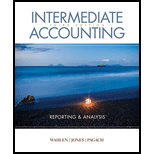
On July 2, 2018, McGraw Corporation issued $500,000 of convertible bonds. Each $1,000 bond could be converted into 20 shares of the company’s $5 par value stock. On July 3, 2020, when the bonds had an unamortized discount of $7,400 and the market value of the McGraw shares was $52 per share, all the bonds were converted into common stock.
Required:
- 1. Prepare the
journal entry to record the conversion of the bonds under (a) the book value method and (b) the market value method. - 2. Compute the company’s debt-to-equity ratio (total liabilities divided by total shareholders’ equity, as described in Chapter 6) under each alternative. Assume the company’s other liabilities are $2 million and shareholders’ equity before the conversion is $3 million.
- 3. Assume the company uses IFRS and issued the bonds for $487,500 on July 2, 2018. On this date, it determined that the fair
value of each bond was $930 and the fair value of the conversion option was $45 per bond. Prepare the journal entry to record the issuance of the bonds.
1.a.
Prepare journal entry to record the conversion of bonds under book value method.
Explanation of Solution
Induced Conversion:
Induced conversion is a method wherein, the convertible bonds issued by the company are converted into common stock in order to reduce interest costs or for increasing the debt-to-equity ratio of the company.
Prepare journal entry to record the conversion of bonds under the book value method.
| Date | Account Titles and Explanation | Debit | Credit |
| July 3, 2020 | Bonds payable | $500,000 | |
| Discount on bonds payable | $7,400 | ||
| Common stock (1) | $50,000 | ||
| Additional paid in capital - Common stock (balancing figure) | $442,600 | ||
| (To record conversion of bonds) |
Table (1)
- Bonds payable is a liability, and it is decreased. Therefore, debit bonds payable account for $500,000.
- Discount on bonds payable is a contra liability, and it is decreased. Therefore, credit discount on bonds payable account for $7,400.
- Common stock is a component of stockholders’ equity, and it is increased. Therefore, credit common stock account for $50,000.
- Additional paid in capital on common stock is a component of stockholders’ equity, and it is increased. Therefore, credit additional paid in capital on common stock account for $442,600.
Working notes:
(1)Calculate common stock.
b.
Prepare journal entry to record the conversion of bonds under the market value method.
Explanation of Solution
Prepare journal entry to record the conversion of bonds under the market value method.
| Date | Account Titles and Explanation | Debit | Credit |
| July 3, 2020 | Bonds payable | $500,000 | |
| Loss on Conversion (balancing figure) | $27,400 | ||
| Discount on bonds payable | $7,400 | ||
| Common stock (2) | $50,000 | ||
| Additional paid - In capital on Common stock (3) | $470,000 | ||
| (To record conversion of bonds) |
Table (2)
- Bonds payable is a liability, and it is decreased. Therefore, debit bonds payable account for $500,000.
- Loss on conversion is a component of stockholders’ equity, and it increases expense accounts. Therefore, debit loss on conversion account for $27,400.
- Discount on bonds payable is a contra liability, and it is decreased. Therefore, credit discount on bonds payable account for $7,400.
- Common stock is a component of stockholders’ equity, and it is increased. Therefore, credit common stock account for $50,000.
- Additional paid in capital on common stock is a component of stockholders’ equity, and it is increased. Therefore, credit additional paid in capital on common stock account for $470,000.
Working notes:
(2)Calculate common stock.
Calculate additional paid in capital – common stock.
(3)Calculate common stock.
2.
Calculate the company’s debt equity ratio under each alternative method described in the chapter 6. Assume the company other liabilities are $2,000,000 and shareholders’ equity before conversion is $3,000,000.
Explanation of Solution
Compute debt to equity ratio before the conversion.
Compute debt to equity ratio after conversion accounted for with book value method.
Compute debt to equity ratio after conversion computed for with market value method.
3.
Prepare journal entry to record issuance of bonds, assume the company uses IFRS and issued the bonds for $487,500 on 2nd July 2018.
Explanation of Solution
| Date | Account Titles and Explanation | Debit | Credit |
| July 2, 2018 | Cash | $487,500 | |
| Bonds payable | $465,000 | ||
| Share premium conversion equity (4) | $22,500 | ||
| (To record issuance of bonds payable) |
Table (3)
Cash is a current asset, and it is increased. Therefore, debit cash account for $487,500.
Bonds payable is a liability, and it is increased. Therefore, credit bonds payable account for $465,000.
Share premium conversion equity is a component of stockholders’ equity, and it is increased. Therefore, credit share premium conversion equity account for $22,500.
Working note:
(4)Calculate share premium conversion equity.
Want to see more full solutions like this?
Chapter 14 Solutions
EBK INTERMEDIATE ACCOUNTING: REPORTING
 Intermediate Accounting: Reporting And AnalysisAccountingISBN:9781337788281Author:James M. Wahlen, Jefferson P. Jones, Donald PagachPublisher:Cengage Learning
Intermediate Accounting: Reporting And AnalysisAccountingISBN:9781337788281Author:James M. Wahlen, Jefferson P. Jones, Donald PagachPublisher:Cengage Learning
